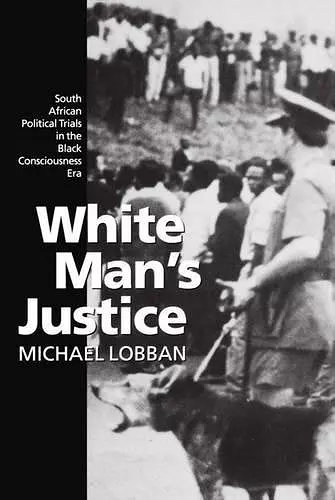White Man's Justice
South African Political Trials in the Black Consciousness Era
Format:Hardback
Publisher:Oxford University Press
Published:28th Mar '96
Currently unavailable, and unfortunately no date known when it will be back

This major new study examines the use of political trials by the apartheid regime in South Africa against its opponents in the 1970s, the decade when the ideology of apartheid was reaching its apogee. After tracing the early history of the South African Students Organization and the Black People's Convention, it shows how the state reacted to the threat posed by the black consciousness movement by launching a major trials of ideas, using the notorious Terrorism Act. It examines how, at the same time, the authorities sought to crack down on white dissent by prosecuting the leaders of the National Union of South African Students. By making a detailed study of trial transcripts in addition to other materials, it explores how the state sought to infiltrate and crush nascent ANC and PAC structures which were re-emerging in the mid 1970s within South Africa. It shows how the prosecution policy and the legal stategy of the state changed during the decade as the nature of the threats it faced altered, culminating in the trial of the leaders of the Soweto Students Representative Council in 1979 for sedition. Arguing that the political trial was perhaps the only venue where white ideology had to engage directy with black protest, this original and thought-provoking account demonstrates how the trials became platforms for competing views of society and politics, which give a unique insight into the conflict between the political ideals held by blacks and whites in this era. It also reveals how large a part politics played in securing the conviction of many dissenters, and how large a part events beyond the courtroom played, in the detention and torture of many activists.
'The conclusions in respect of particular cases are based on a painstaking presentation and examination of the material. The assessment is thorough and impartial...This book is a valuable addition to the serious literature on a critical aspect of recent South African history. It applies high academic standards in an evaluation of a particular aspect of the performance of the judiciary.'
'Lobban sticks for the most part to his trial-based evidence , but he presents it well... this book will be appropriate and valuable reading for courses both in legal history and Southern African studies, and also in law faculties more generally.'
ISBN: 9780198258094
Dimensions: 241mm x 161mm x 23mm
Weight: 576g
298 pages